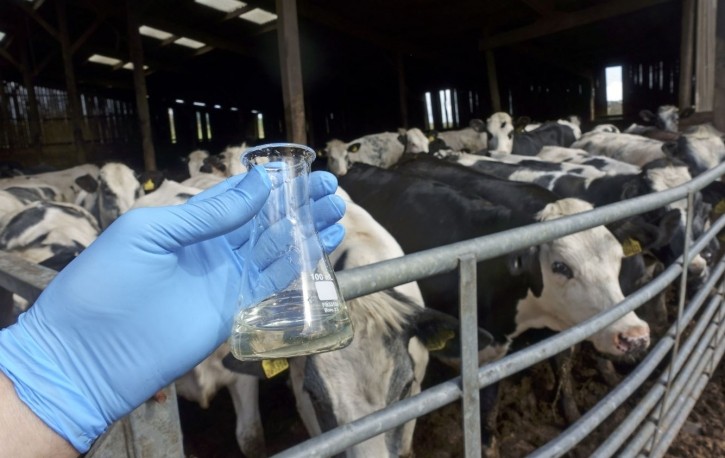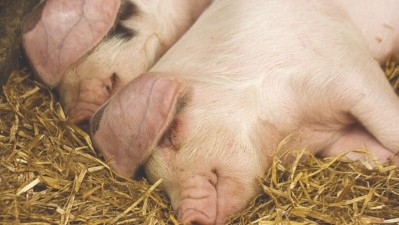Business giants pile on pressure to cut antibiotics in global food chain

Greater efforts to kill off AMR and recognise it as a health and economic risk like Covid-19 and the 2008 financial crisis must be made by global leaders who will otherwise face dire consequences, the Investor Action on Antimicrobial Resistance Group has warned in a letter.
“Investors recognise AMR is not only a threat to the health of our people and planet, but to the financial wellbeing of those who rely on investment returns to fund their retirements,” said the group.
Pollution from the agricultural, pharmaceutical and healthcare sectors are some of the main drivers of AMR, the UN states. But also the misuse of antibiotics in livestock and in treating conditions in humans has contributed to the problem.
Fast-food giants including McDonald's, Burger King, KFC and Pizza Hut have in the past faced investor pressure to cut antibiotics use to help prevent the spread of antibiotic-resistant "superbugs".
Making moves against AMR
Up to $443bn of productivity could be lost each year to 2035, warned the 80 signatories, who include Legal & General Investment Management and HESTA.
The letter was posted to world leaders ahead of the UN General Assembly’s second high-level meeting on AMR this month. It warns the crisis has caused more deaths than HIV/AIDS and malaria in 2019. Some 700,000 globally die from AMR-related infections annually, which is expected to rise to 10m a year by 2050.
Antibiotics use for farmed animals and in the aquaculture had decreased by 28% between 2018 and 2022 within the EU-27, The European Environment Agency reported in May. Member States continued to act on reaching the farm to fork target of reducing antimicrobial sales by 50% by 2030.
Despite efforts, more action was needed and the signatories made seven ‘asks’, including the need for science-based guidance and targets; stewardship and one health; and integrated surveillance.
“The Covid-19 pandemic spurred investor recognition of the financial imperative to combat systemic health risks,” the group said. “Analysis finds that, since 2020, at least 20 shareholder resolutions have targeted AMR risks throughout global supply chains – from pharmaceutical companies and livestock producers to food retailers and restaurants.”
While an international framework on dealing with AMR does not exist, awareness among policy makers is growing. The UK government pledged £85m in antibiotics R&D support earlier this year, as well as to help improve the global health infrastructure, strengthen surveillance systems to better monitor AMR threats.
Independent panel on AMR
“It is imperative we address AMR with decisive, coordinate global action,” said Jayasree Iyer, CEO of Access to Medicine Foundation. “This collaboration in the run up to UNGA and beyond will be pivotal in brokering dialogue around reducing AMR, safeguarding public health and ensuring the efficacy of life saving medicine for future generations worldwide.”
The UK government, along with the Saudi Arabian government, had called for an independent panel on AMR in the style of the intergovernmental panel on climate change.
If enacted, the proposed panel would monitor the future risks and impacts of AMR and provide policymakers with frequent scientific assessments to support decision making.
“AMR poses a serious threat to investment portfolios, economic stability and global health,” said Legal & General Investment Management senior global ESG manager and health lead Maria Larsson Ortino.
“It’s encouraging to see a unified response from investors, reflecting a shared commitment to address this urgent challenge, LGIM stands firmly behind this statement and calls on others to join us in seeking effective solutions to combat AMR, and we hope the UNGA will drive meaningful progress on this crucial issue.”
The IAAMR’s seven asks of world leaders:
Science-based Guidance and Targets
1) We encourage global policymakers to support the establishment of an independent panel, modelled on the International Panel on Climate Change (IPCC), to provide policymakers with regular scientific assessments on AMR
2) We encourage global policymakers to support the development of an international framework, such as the Montreal Protocol or the Paris Agreement, for AMR with a science-based target to guide sustained and cohesive action on AMR
Stewardship and One Health
3) We encourage global policymakers to commit to reductions in the use of antibiotics in agriculture and end the routine use of antibiotics for growth promotion and group prophylaxis in animal farming
4) We encourage global policymakers to adopt legislative initiatives to set maximum residue limits for antibiotics in wastewater from manufacturing facilities. We encourage global policymakers to establish appropriate mechanisms to manage antibiotic residues entering the environment from additional sources such as livestock manure and wastewater treatment systems
Integrated Surveillance
5) We encourage global policymakers to continue to support the establishment of a globally integrated surveillance system for AMR and antibiotic use, building on existing quadripartite surveillance systems, to identify patterns and react accordingly. This should integrate data across humans, animals, and the environment. In particular, global policymakers should align on legislative requirements, similar to those of EU member states, requiring the volume and use of antibiotics in animal agriculture to be accurately collected and reported
Funding the Development of New Antimicrobials
6) We encourage global policymakers to continue to promote research and development (R&D) of new antimicrobials and alternatives to antimicrobials, especially those that target priority pathogens as defined by the World Health Organisation ensuring the needs of low-and middle-income countries (LMIC) are taken into account. We note that several G7 countries have introduced push and pull incentives and encourage other nations to put similar mechanisms in place to ensure the future development and availability of critical antimicrobials and alternatives to antimicrobials
Global Equitable Access
7) We encourage global policymakers to address the lack of equitable global access to novel and existing antimicrobials and alternatives to antimicrobials. This could be supported by establishing a multilateral fund to provide financing to LMICs to drive equitable access to antimicrobials; engaging with the generics and biosimilars market to incentivise that they work to meet supply and demand with quality assured products; supporting the implementation of national action plans; improving surveillance systems; and mandating early access planning in all R&D collaborations














